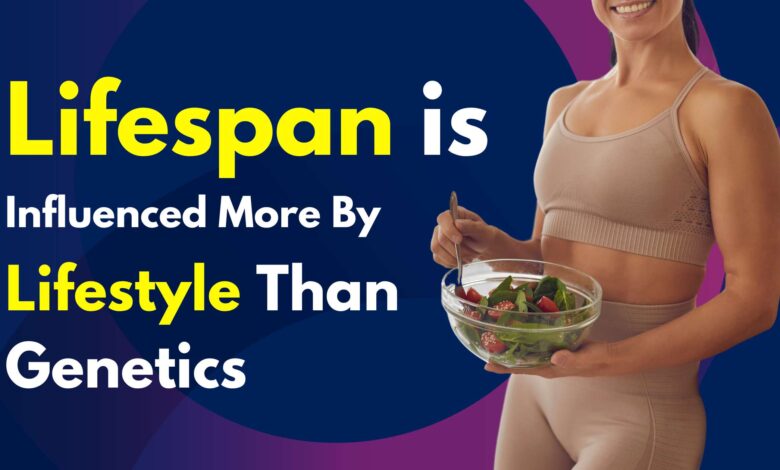Lifespan is Influenced More By Lifestyle Than Genetics

In centuries-old debates about the determinants of lifespan, genetic and lifestyle factors are often pitted against each other. While there is no doubt that genetic predisposition plays a role in shaping health outcomes, there is growing evidence that lifestyle choices have a major impact on longevity. This review addresses the claim that longevity is more influenced by lifestyle than genetics and highlights the transformative potential of active lifestyle interventions.
Lifestyle as the Main Determining Factor:
In contrast to the deterministic view of genetics, lifestyle has been found to be the main determinant of longevity. While genetics lays the foundation, lifestyle choices such as diet, physical activity, stress management, and social contacts act as modifiable factors that extend or shorten lifespan. Research shows that even in people with a genetic predisposition to certain diseases, lifestyle interventions can reduce risk and promote longevity.
Influence of Diet and Nutrition:
Diet plays an important role in shaping health status and longevity. A diet rich in whole foods, fruits, vegetables, and lean proteins not only provides essential nutrients but also protects against chronic diseases such as cardiovascular disease, diabetes, and certain cancers. Conversely, poor eating habits high in processed foods, sugar, and unhealthy fats can accelerate the aging process and make you more susceptible to disease.
Exercise and Physical Activity:
Regular physical activity is the cornerstone of a healthy lifestyle and is clearly associated with longevity. Exercise not only strengthens the cardiovascular system, increases muscle tone and improves mobility, but also has a positive effect on mental health and cognitive function. Activities such as walking, swimming, and strength training not only extend your lifespan, but also improve your quality of life.
Stress Management and Mental Health:
Chronic stress is a silent killer that can affect your health and shorten your lifespan. Effective stress management techniques such as mindfulness meditation, yoga, and relaxation exercises can reduce the negative effects of stress on your body and mind. Developing resilience and promoting positive psychological well-being is an essential part of a lifestyle that promotes longevity.
Social Connections and Support Networks:
Humans are inherently social creatures, and strong social connections have been shown to promote longevity. Meaningful relationships, social support networks, and a sense of belonging contribute to emotional resilience, reduce the risk of depression and anxiety, and promote a positive outlook on life. Investing in social connections and civic engagement can have a significant impact on life expectancy.
Environmental Factors and Lifestyle Choices:
Environmental factors such as access to healthcare, socio-economic status, and environmental pollution influence life expectancy and influence lifestyle choices. Disparities in access to healthcare and socio-economic inequalities can exacerbate health inequalities and impact longevity. Eliminating systemic inequalities and promoting health equity is an essential part of promoting longer, healthier lives for everyone.
Epigenetics and Lifestyle Influences:
The emerging field of epigenetics explains how lifestyle factors can influence gene expression and alter genetic outcomes. Epigenetic mechanisms such as DNA methylation and histone modifications can be influenced by lifestyle choices such as diet, exercise, and stress management. These epigenetic changes can have profound effects on health and longevity, highlighting the dynamic interplay between genetics and lifestyle.
Conclusion:
In summary, the argument that longevity is more influenced by lifestyle than genetics highlights the transformative power of positive lifestyle interventions. While genetics provide the blueprint, lifestyle choices shape health status and the course of life. Enabling individuals to adopt healthy behaviors, make informed decisions, and create supportive environments is critical to extending lifespans and promoting lifelong well-being. Through lifestyle changes that emphasize diet, exercise, stress management, and social connections, individuals can unlock the potential to live longer, healthier, and more fulfilling lives.




